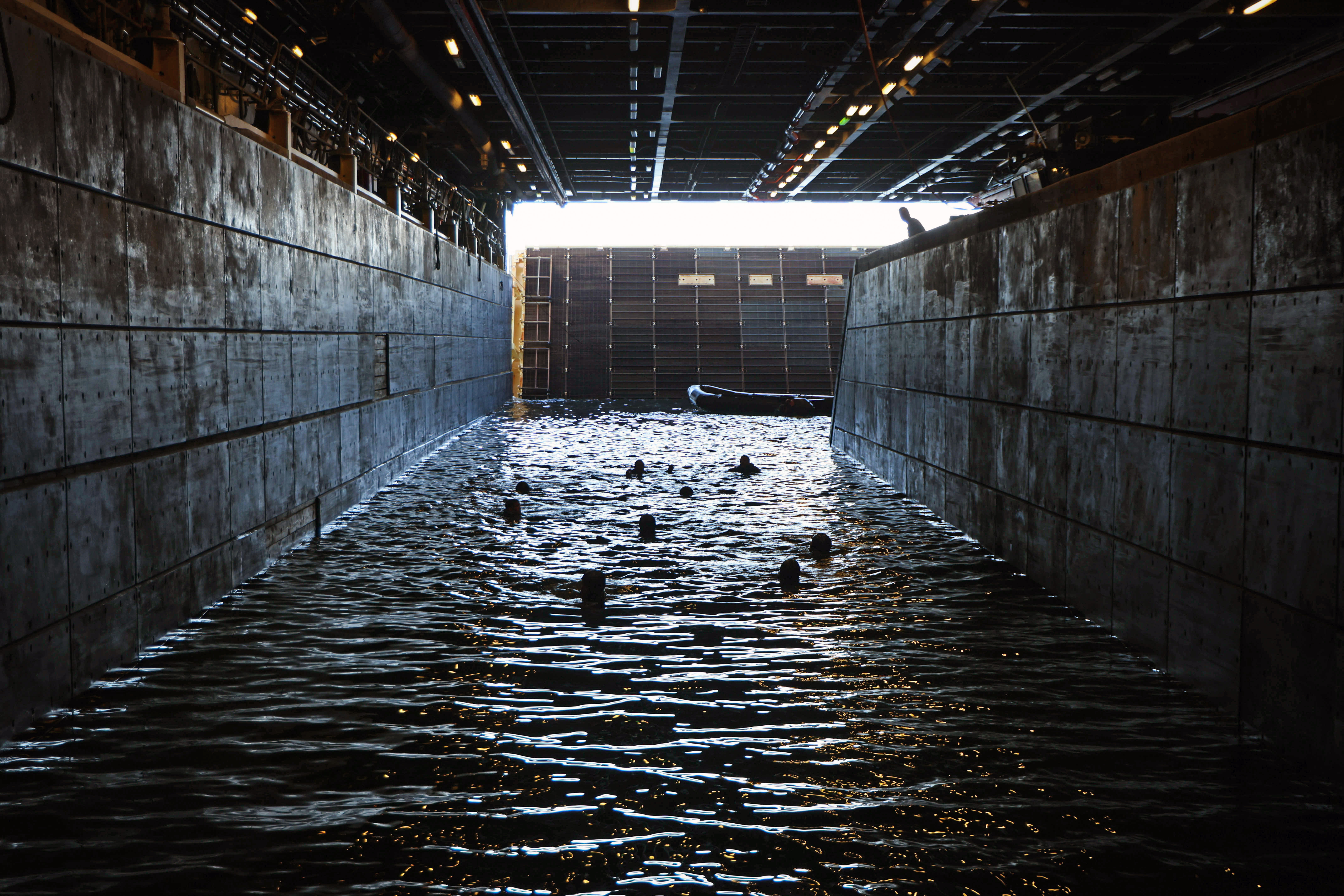4 min read
Security fears over weaponry as UK pulls licences for ‘floating armouries’ used to counter Somali pirates
By: iNews on August 11, 2023 at 12:00 PM

A Government decision to revoke the licences of a British company providing ‘floating armouries’ for weaponry used to protect commercial shipping in the Indian Ocean has raised concerns about the security of the arsenal of some 3,000 arms.
The security of 3,000 guns and other weapons kept on “floating armouries” for use by guards protecting ships from piracy has been brought into question after the Government abruptly withdrew the licences of a British company operating the storage vessels.
MNG Maritime, based in west London, is one of a dwindling number of companies which provide secure armaments storage facilities on board vessels in the Indian Ocean for private security contractors who hire out armed guards to accompany vessels as they pass piracy hotspots off the coast of Somalia.
While the UK company is not directly involved in anti-piracy patrols, it instead provides secure vessels to keep the weaponry owned and used by about 30 Private Maritime Security Contractors (PMSCs) to provide armed protection to commercial shipping. The floating storage and logistics facilities, which are licenced and regulated by the UK authorities, are necessary because of the reluctance of governments in the region to provide land-based warehousing for such a sizable arsenal.
MNG Maritime’s licences to operate three of these seaborne armouries were suddenly withdrawn earlier this month by the Department for Business and Trade (DBT). The reasons for this withdrawal remain unclear but it is understood it followed a decision by MNG Maritime to voluntarily report that without its knowledge a non-UK security contractor using its storage facilities may have provided guards for a foreign vessel which is subject to UK sanctions.
A Dearth of Appropriate Storage Alternatives
The withdrawal of the licences means that the private security contractors using the storage facilities, which include a converted small cruise ship, must now find a new location for their weaponry. The DBT on Monday extended a deadline that had been due to expire at midnight for the security companies to have completed the transfer.
But a lawyer for MNG Maritime said there is a dearth of appropriate alternative licenced storage, raising the question of security for the weaponry in one of the world’s more unstable regions.
Stephen Askins, of maritime law firm Tatham & Co, said security contractors were facing a “serious logistical and security challenge” which could result in the armaments going to less secure storage or having to be destroyed. In an online posting, he said: “There simply isn’t enough capacity on the other licenced vessels to take the weapons. That will push these weapons onto unlicenced facilities or they will need to be destroyed where they are.”
He suggested that the withdrawal of the licences was also affecting the ability of private security contractors to protect shipping because the necessary weaponry can now only be transferred to another storage facility or “to the bottom of the ocean”.
The Indian Ocean, in particular the coast off Somalia, has been for years a lucrative hunting ground for pirate gangs using fast boats to board cargo vessels and tankers before holding the ships and crews to ransom. But the adoption of techniques including the provision of armed guards and improved digital surveillance has led to a dramatic fall in the number of incidents in recent years, with global piracy attacks now at a near 30-year low.
Industry sources said that the number of providers of services such as weaponry storage was reducing as a result, leaving large numbers of security contractors reliant on companies like MNG Maritime.
No Reason Given for Licence Revocation
MNG Maritime did not respond to a request to comment on the removal of its licences. The company’s lawyer said it had been told by the UK Government that the revocation related to the actions of a “non-UK PMSC providing guards to a sanctioned fleet” but it was unclear whether MNG Maritime could itself have broken any rules.
Mr Askins said: “It’s not clear whether that would necessarily breach sanctions on the part of MNG but there was no opportunity given to look into whether that was a breach of the existing sanctions.”
The Government declined to comment on the grounds for the removal of the licences but said it had “not taken lightly” the decision to revoke. A DBT spokesperson said: “We take our export control responsibilities seriously… We keep all licences under careful and continual review as standard. Decisions to revoke licences are not taken lightly.”
The department added that it contacted PMSCs affected by its changes to explore “practical solutions” to the ongoing weaponry storage problem and allowed a further two weeks for contractors to make new arrangements.
Related Posts
Vessel Protection - Why where floating armouries..
The upsurge of piracy in the Gulf of Aden and wider Indian Ocean in 2006 to 2009, led commercial..
Vessel Protection - Floating Armouries Evolution
The decision by governments in the HRA to eliminate potentially insecure or destabilizing..
Vessel Protection - Floating Armouries and the Law
Floating armouries, which store weapons for Private Maritime Security Companies, operate under a..



